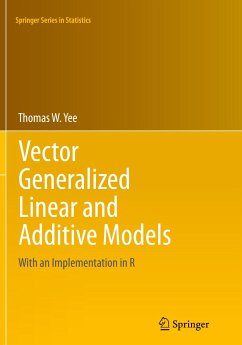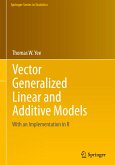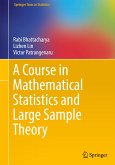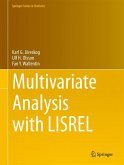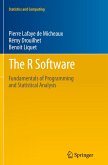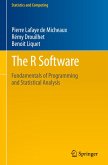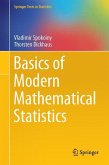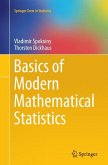This book presents a greatly enlarged statistical framework compared to generalized linear models (GLMs) with which to approach regression modelling. Comprising of about half-a-dozen major classes of statistical models, and fortified with necessary infrastructure to make the models more fully operable, the framework allows analyses based on many semi-traditional applied statistics models to be performed as a coherent whole.
Since their advent in 1972, GLMs have unified important distributions under a single umbrella with enormous implications. However, GLMs are not flexible enough to cope with the demands of practical data analysis. And data-driven GLMs, in the form of generalized additive models (GAMs), are also largely confined to the exponential family. The methodology here and accompanying software (the extensive VGAM R package) are directed at these limitations and are described comprehensively for the first time in one volume. This book treats distributions and classical models as generalized regression models, and the result is a much broader application base for GLMs and GAMs.
The book can be used in senior undergraduate or first-year postgraduate courses on GLMs or categorical data analysis and as a methodology resource for VGAM users. In the second part of the book, the R package VGAM allows readers to grasp immediately applications of the methodology. R code is integrated in the text, and datasets are used throughout. Potential applications include ecology, finance, biostatistics, and social sciences. The methodological contribution of this book stands alone and does not require use of the VGAM package.
Since their advent in 1972, GLMs have unified important distributions under a single umbrella with enormous implications. However, GLMs are not flexible enough to cope with the demands of practical data analysis. And data-driven GLMs, in the form of generalized additive models (GAMs), are also largely confined to the exponential family. The methodology here and accompanying software (the extensive VGAM R package) are directed at these limitations and are described comprehensively for the first time in one volume. This book treats distributions and classical models as generalized regression models, and the result is a much broader application base for GLMs and GAMs.
The book can be used in senior undergraduate or first-year postgraduate courses on GLMs or categorical data analysis and as a methodology resource for VGAM users. In the second part of the book, the R package VGAM allows readers to grasp immediately applications of the methodology. R code is integrated in the text, and datasets are used throughout. Potential applications include ecology, finance, biostatistics, and social sciences. The methodological contribution of this book stands alone and does not require use of the VGAM package.
"This book, a much larger and more flexible statistical framework is presented that has greatly expanded generalized linear models for regression modeling, which centers on vector generalized linear models (VGLMs), vector generalized additive models (VGAMs), and their variants with implementation in R. ... book can serve as a textbook for senior undergraduate or first-year postgraduate courses on generalized linear models or categorical data analysis. This book is also an excellent resource for statisticians, applied statisticians, natural scientists and social scientists." (Yuehua Wu, zbMATH 1380.62006, 2018)
"The book unifies seemingly unrelated areas such as univariate distributions, categorical data analysis, quantileregression, and extremes. The underlying idea is to treat almost all distributions and classical models as generalized regression models. ... The book may be used in senior undergraduate and first-year graduate courses on GLMs and regression modeling. It may serve as a methodology resource for users of VGAMs." (Alexander G. Kukush, Mathematical Reviews, May, 2016)
"The book unifies seemingly unrelated areas such as univariate distributions, categorical data analysis, quantileregression, and extremes. The underlying idea is to treat almost all distributions and classical models as generalized regression models. ... The book may be used in senior undergraduate and first-year graduate courses on GLMs and regression modeling. It may serve as a methodology resource for users of VGAMs." (Alexander G. Kukush, Mathematical Reviews, May, 2016)

